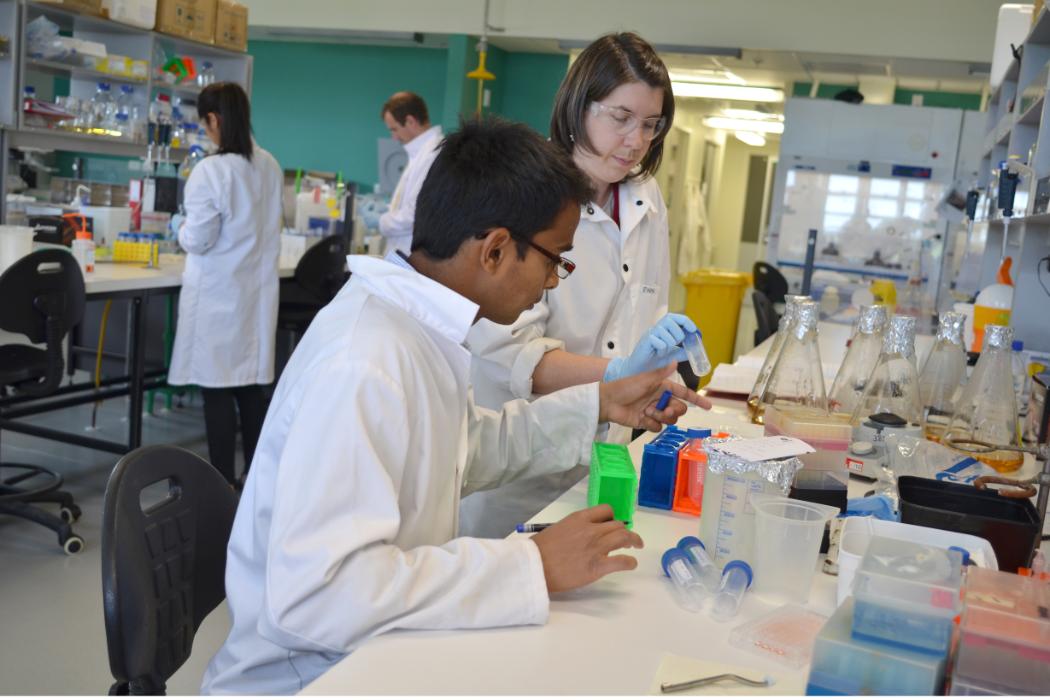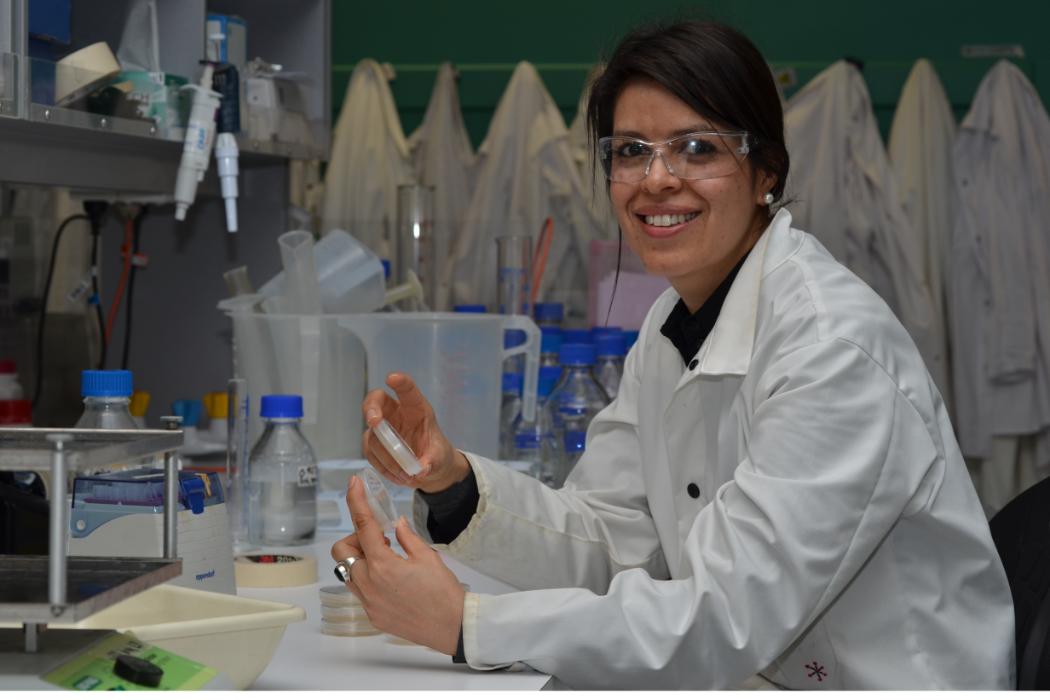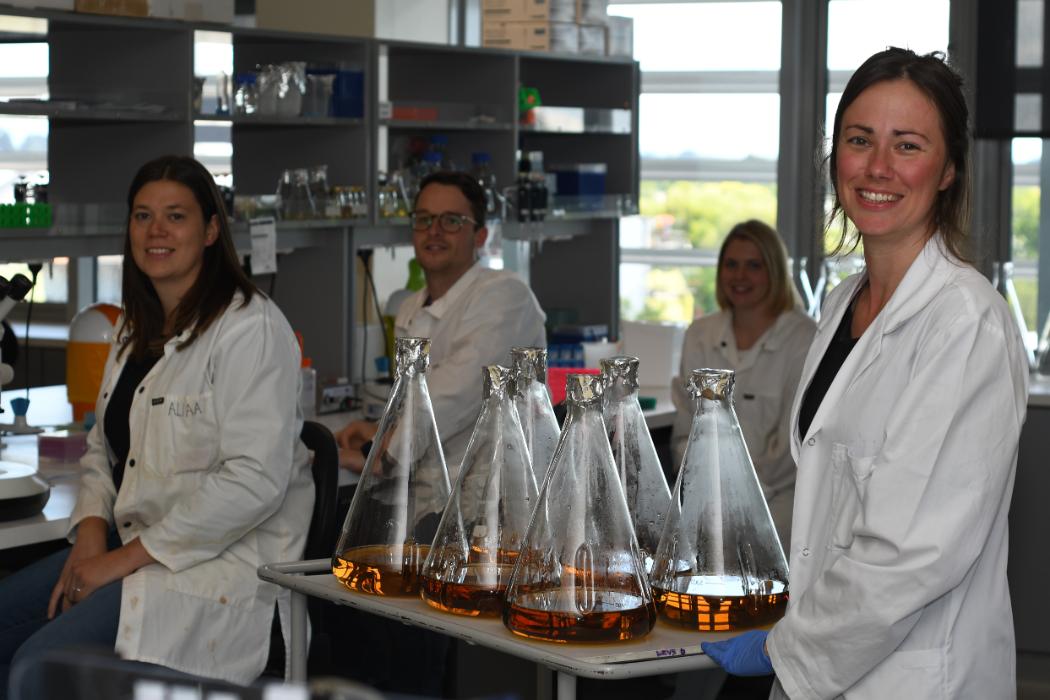
Master’s research at BIC is usually done through the Master of Science (MSc) or Master of Engineering (MEng) programmes. Our academics generally recruit Master's students to work on our flagship research projects. See our scholarships page for current opportunities.
The steps below outline the process of finding out more about BIC's research projects and how to apply to the Master's programme:
The first step is to read about our research and see if your areas of interest are covered by BIC's research.
- See BIC's flagship research projects.
- Look at BIC's UC Spark research group page.
Next, find out which BIC staff are involved in your area of interest and get in contact with them to see if there is mutual interest in a research topic.
- Browse the list of BIC staff to find potential supervisors.
- Use the BIC contact page for a general enquiry.
Then investigate the scholarships and other support that are available to help you study at BIC.
- See the BIC Scholarships page
- Contact the UC Scholarships Office for more information:
Phone +64 3 369 3458; +64 3 369 3460; +64 3 369 3394
Email scholarships@canterbury.ac.nz
Location Student Service Centre, level 1, Matariki
Finally, to take the next step to apply to study at BIC:
- Follow the steps on the UC College of Science postgraduate advice and forms page to apply.
- Use the BIC contact page if you have a general enquiry about studying at BIC.
Current scholarships
This section will be updated as new scholarships become availabe.
More information
For further information about the UC Master's programme see these pages:
PhD study

The first step is to read about our research and see if your areas of interest are covered by BIC's research.
- See BIC's flagship research projects.
- Look at BIC's UC Spark research group page.
Next, find out which BIC staff are involved in your area of interest and get in contact with them to see if there is mutual interest in a research topic.
- Browse the list of BIC staff to find potential supervisors.
- Use the BIC contact page for a general enquiry.
Then investigate the scholarships and other support that are available to help you study at BIC.
- See the BIC Scholarships page
- Contact the UC Scholarships Office for more information:
Phone +64 3 369 3458; +64 3 369 3460; +64 3 369 3394
Email scholarships@canterbury.ac.nz
Location Student Service Centre, level 1, Matariki
Finally, to take the next step to apply to study at BIC:
- Follow the steps on the UC College of Science postgraduate advice and forms page to apply.
- Use the BIC contact page if you have a general enquiry about studying at BIC.
Our academics regularly recruit PhD students to work on our flagship research projects. See below for our current opportunities.
Current scholarships
BIC offers an excellent training environment and state-of-the-art equipment for our graduate students.
PhD topics available include:
Food Protein Interactomics: How do Proteins Interact with other Polymers in Food Crops?
We are looking for a motivated student with experience in biochemistry and chemistry to study the interactions between food proteins and other food polymers.
The ‘protein transition’ towards plant-based foods in our diet is a key requirement for addressing the ecological and societal challenges we face. This research will define the interactions between proteins and plant molecules (such as polyphenols or carbohydrates) in protein-rich plant materials and will determine how new food processing techniques influence or change these interactions. Insight into these interactions is crucial, as they alter expected physicochemical properties of proteins, including protein solubility and bioavailability of essential amino acids. This project will develop methods to characterise these interactions in protein-rich plant material as a first step in the route to new plant-based foods.
The student we are seeking will have a high-quality Honours or Master’s degree in chemistry or biochemistry, and be able to work independently. Experience with food proteins, bioinformatics, and mass spectrometry is an advantage.
This is a funded PhD scholarship for the Joint Postgraduate School | Food Transitions 2050. The successful applicant will be enrolled at the University of Canterbury, but the project will be conducted across the University of Canterbury and AgResearch (Lincoln). International students pay domestic fees and the University can assist you to obtain a student visa. The scholarship includes an annual tax-free stipend of $28,000 p.a. (paid in monthly instalments) plus tuition fees, for three years. To apply for the scholarship, your grades preferably need to be A- average or better (GPA of 7/9 or better).
If English is not your first language, you must have passed English exams with scores that meet the requirements for postgraduate study in New Zealand, for example, an IELTS score of at least 6.5 overall, and no less than 6.0 in each band.
If interested, please send your CV and transcript to:
Ren Dobson: renwick.dobson@canterbury.ac.nz
Evelyne Maes: Evelyne.Maes@agresearch.co.nz
Simon Loveday: Simon.Loveday@agresearch.co.nz
Applications will close on Dec 1st, 2021. The student must be enrolled and ready to commence their programme along with the rest of the cohort on 1 March 2022.
3D printed porous media for process engineering (scholarship details)
We are seeking highly motivated PhD applicants to join our ambitious research programme exploring how 3D printing can revolutionise manufacturing processes in chemical engineering. We are looking for applicants with excellent academic records and strong written skills. We want people who can demonstrate outstanding ability in numerical methods, lab-based measurements, machine learning or computer graphics, or some combination of these. You will need to demonstrate an aptitude to learn a broad range of new skills, including those outside your existing discipline.
Hosted by the Biomolecular Interaction Centre at the University of Canterbury, this ambitious research programme is a collaboration with Victoria University of Wellington, University of Otago and Callaghan Innovation. It is funded by the Ministry of Business, Innovation and Employment through their Endeavour Fund.
As a PhD student in our programme, you will join an interdisciplinary team of more than 25 academics, postdocs and PhD students. Depending on your skillset and experience, combined with your research and career ambitions, we have opportunities based in Christchurch, Wellington and Dunedin.
The scholarships are $27,500 per year for three years plus all fees. To find out more, please contact biomolecular@canterbury.ac.nz.
We have a specific opportunity available now that will focus on heat transfer in our 3D printed heat exchangers. We’re looking for a candidate who can start by September 2021 and who is either in New Zealand or willing to apply for Critical Worker exemption to be able to enter New Zealand under the current border restrictions. This PhD project is experimental and so there is not an option to work remotely. For more info, please see: 3D printed porous media: heat exchangers at University of Canterbury on FindAPhD.com
Expressions of interest and to find out more
If you’d like to find out more about our work and the postgraduate opportunities available, please email biomolecular@canterbury.ac.nz.
More information
For further information about the UC PhD programme see:
- The UC PhD degrees page.
Postdoctoral research
When available, vacancies will be advertised here and on our social media channels.


